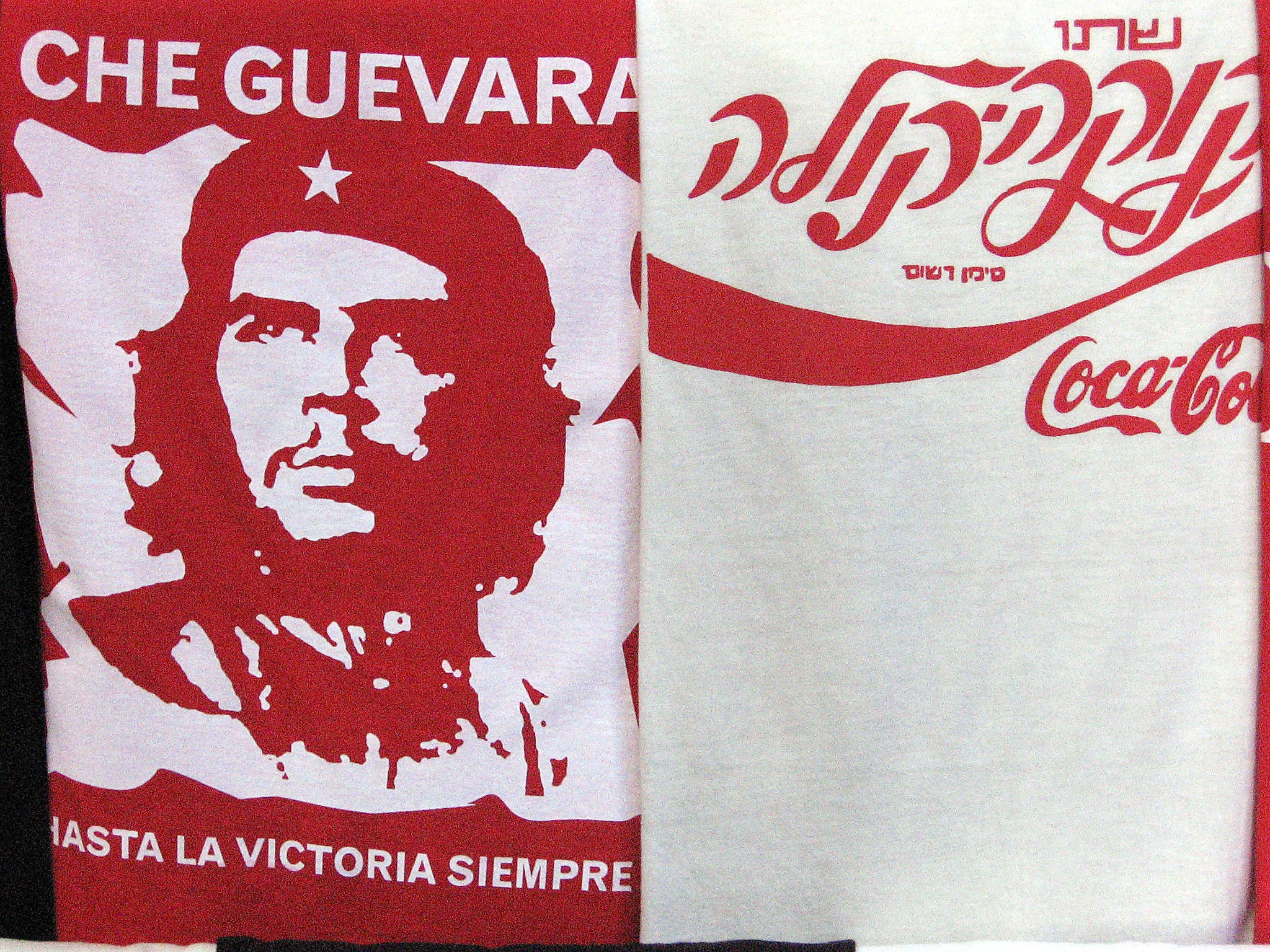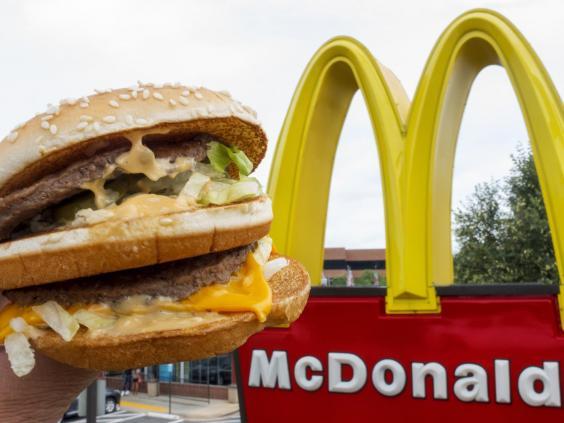Iconic brands and the clamour for a utilitarian world wrapped in brown paper packaging
Britain recently joined the trend to sell cigarettes in plain packets. More countries are talking about going plain. Will alcohol and sugary foods be next and if so where will it end? The brands industry is fighting back. Apart from the economic repercussions of this utilitarian activity, Oliver Bennett asks do we really want to live in a beige world?

Your support helps us to tell the story
From reproductive rights to climate change to Big Tech, The Independent is on the ground when the story is developing. Whether it's investigating the financials of Elon Musk's pro-Trump PAC or producing our latest documentary, 'The A Word', which shines a light on the American women fighting for reproductive rights, we know how important it is to parse out the facts from the messaging.
At such a critical moment in US history, we need reporters on the ground. Your donation allows us to keep sending journalists to speak to both sides of the story.
The Independent is trusted by Americans across the entire political spectrum. And unlike many other quality news outlets, we choose not to lock Americans out of our reporting and analysis with paywalls. We believe quality journalism should be available to everyone, paid for by those who can afford it.
Your support makes all the difference.Want to flog a pack of say, Silk Cut or Marlboro Light? Expect to get your collar felt. It became an offence recently to sell cigarettes in branded packaging in the UK. The law now states that cigarettes can only be sold in dowdy green boxes carrying lurid images of diseases. Cigarette brands are becoming a thing of the past.
Designed to repel, these sludgy new packs are a step further along the worldwide campaign to sell products that are seen as harmful. In 2012, Australia became the first country to fully implement plain packaging for tobacco. France followed suit in January this year, and from next September, Ireland will go plain. Canada, France, Hungary – and India, Malaysia and the Philippines – are talking about going plain. It's a global movement.
And just as these countries are considering plain packs, so voices are joining the clamour to introduce utilitarian, unbranded packaging for other goods. Last December, the body Public Health England released a report calling for plain packaging to be considered for alcohol, and earlier this year, the University of Liverpool published a study recommending that warning labels and plain packaging be used in booze. This was closely followed by the award-winning professor of neuroscience at the University of Cambridge, Wolfram Schultz, who proposed that the advertising of calorie-rich and sugary foods be banned, and sold in plain packs. Okay. It’s about harm reduction. Plain packs might save on public health costs; not to mention the personal calamity of ill-health.
The lack of branding might stop impressionable youngsters from trying tobacco, although arguments rage about whether that has happened in Australia. But in time, who knows? Perhaps the Golden Arches will be torn down and no one will be able to see if you are quaffing Tennant’s Super or Cristal.
As the plain packaging arguments have developed, a growing number of voices are begging to differ from the plain pack argument, and are becoming concerned about the long-term trend. At the International Trademark Association’s (INTA) annual general meeting last week in Barcelona, thousands of trademark, brand and intellectual property professionals vowed to fight back, and promote '‘the value of trademarks and brands'’.
“In the past several years, we’ve observed regulations and legislation,” says a spokesman, fearing “the expansion of brand restrictions initially targeted at tobacco products into other industries and product categories.” INTA has already set up a task force to “examine the various shapes and forms of brand restrictions, such as plain packaging, standardised packaging, and laws introduced to ban or reduce the use of characters (which are trademarks) on packaging".
It's tradey. Why should the ordinary punter care? Because brands are the stuff of life, says design guru Stephen Bayley, who’s writing a “polemic” called Signs of Life: Why Brands Matter (Circa Press), due in September, which he describes as “a defence and celebration of brands from the Christian Cross to the Nike Swoosh”.
Where we are now is a bit like the Reformation, with zealots breaking statues in search of a mythical purity. “Brands are culturally and economically important,” says Bayley, who with typical flamboyance quotes French critic Roland Barthes ( ‘'… an object is the best messenger of a world above that of nature…'’) and rhapsodises thus: “Brands bring sensations of belonging, respect, advocacy and sometimes even love.”
Bayley is concerned that the plain packagers, claiming victory, will indulge in mission creep, and that brands need defending. “This shouldn’t be confused with a defence of the product, ” says Bayley. “I hate smoking. No one’s allowed to smoke in my house. And I’m more of a disposer than a consumer. ” That said, he believes that there’s a curve of disapproval on lifestyle products, that seeks to reduce marketing, and which shows no sign of abating. “There’s alcohol next, then sugar. Will it then be car brands, because of dangerous driving? ”

Sports such as rugby and motor racing could suffer. There are already brand restrictions on baby formula and fast food in some markets, reasonable to many. But what if it were cheese, or chorizo, or coffee? People should be wary of losing brands, believes Bayley, and the government should be wary of losing the creative industries that create and enhance them.
In marketing circles there's talk of ‘'slippery slopes'’ and ‘'thin ends of wedges'’: a curious turn of events as brands are at a high point economically. As Bayley says: “The creation of an attractive brand is now perhaps the single most economically important business activity.'' A brand can be worth up to 85 per cent of a company, and there’s a whole shiny new global industry in evaluating them. The value of Coca Cola's brand alone is estimated at $56.4bn.
Jonathan Sands, of brand and design consultancy Elmwood, thinks the plain packaging movement is using a “sledgehammer to crack a nut. The brand is a totem that helps people make decisions. We use brands as signposts.” Moreover, he asks, will plain packs actually change behaviour, apart from making life more dull? “The vast majority drink in moderation and I’m not convinced that plain packs will stop people abusing alcohol. Also, we live in a society where we need to enjoy life.”
Others are more incensed, including designer Ron Cregan, who is about to launch a new group called Endangered Species at the end of July, to campaign against “regulatory threats” including plain packaging. Cregan has skin in the game: several years ago he redesigned the Teacher’s Whisky bottle, then hospitality and clubs – “Claridge’s, members clubs, that sort of thing” – and is concerned that packaging bans bring beige boringness to our lives, without any real gain.
“As a consumer you have a very dead space with plain packs,” he says. “Think of the shape of an iconic Champagne bottle, or a bottle of wine without the beautiful chateau label. It’s draconian. A bean counter’s charter. And if a product is so bad, why not just criminalise it? If not, it’s hypocritical, when those products are both legal and taxed. The whole premise is full of logical and ethical problems.”
And that’s before counting the popularity of ‘'unbranded'’ brands,'' says Gregor Jackson, director at design agency gpstudio, who is concerned about “a wider future lacking in creativity; a sterile environment of products”.
As it matures, arguments are raging about the efficacy of the Australian plain-packaging experiment. Yes, cigarette consumption is declining, but it was declining anyway. Indeed, just after the ban was introduced, there was a small spike in sales, which is attributed to counterfeits entering the market (plain packs are apparently easier to fake).
Which leads to another dimension: that designers are already getting past the plain packaging issue. “Graphics is only one part of design,” says Sands. “So you can ban them, but then you’ll create other kinds of creativity as designers adapt.” For example, Sands thinks that sonic design will grow. “There’s already a Mumm’s radio tag, an RFID, that sets off a signal that plays songs and lights on the table that ordered Mumm's champagne. The ritual of a Guinness, for example, could easily be a powerful part of its branding.” For alcohol, in particular, brands will morph into an integrated “convivial space” and increasingly, communicate directly to consumers. Says Jenny White, also at gpstudio: “Perhaps we’ll see a rise in cigarette cases so that people can express their identity through an accessory."
The plain packaging subject is also exercising David Gluckman, a veteran adman and author of That S*it Will Never Sell, who developed several brands including Baileys Irish Cream and Smirnoff Black. “It makes drinking a utilitarian activity and will have economic repercussions,” he says. “Take Scotch whisky, which is worth £5bn a year, exporting all over the world. Are we really saying that it should be plain for us, but branded for foreigners, depending on where they live? The Irish, post-Brexit, would seize the industry and we'd lose out ”
The newer hipster distillers such as Michael Vachon of Maverick Drinks and Jared Brown of craft gin Sipsmith, are also vexed. “An absurdity,” railed Vachon, adding that the burgeoning craft side of the drinks industry, such a feature of the past five years, would lose out to big, deep-pocketed producers.
Of course, brands are "voodoo", says Bayley, and people think of them in irrational ways. “Some think they’re sinister spells that perniciously influence the behaviour of individuals,” he says. “Others say that brands are folklore: symbolic glue that binds us in collective yearnings, providing meaning and value in a sometimes bleak world.”
But life without them would take away a layer from our culture: of trust, of value, of communication. Say you have turbulence on an aeroplane, adds Bayley, and you become worried. “Suddenly you notice the Rolls-Royce logo on the engine nacelle. Do you feel better? Of course you do. Those are Rolls-Royce's brand values and they are infinitely precious.”
Join our commenting forum
Join thought-provoking conversations, follow other Independent readers and see their replies
Comments